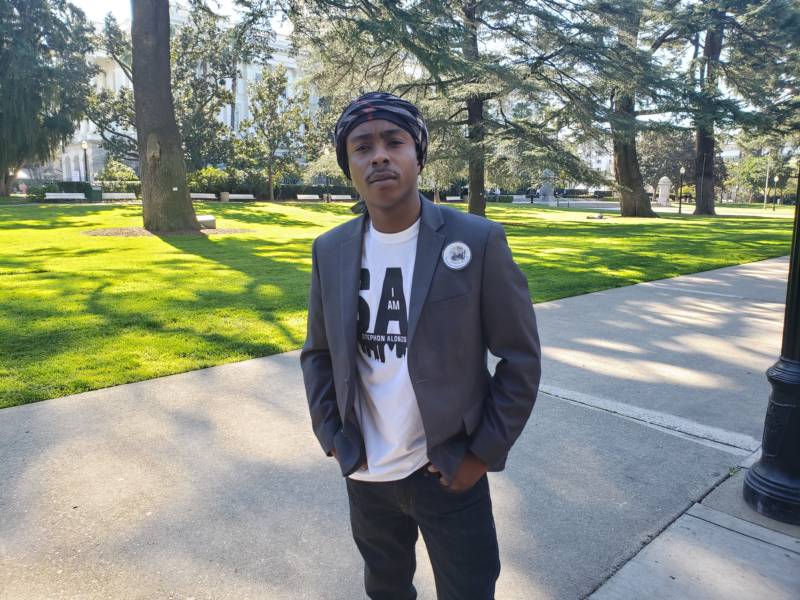While announcing she wouldn’t charge the officers, Schubert cited texts and phone calls Clark sent in the days leading up to the shooting indicating he might be suicidal. Stevante Clark said her words were particularly difficult to hear.
"The last few weeks has been pretty hard for the family because of the way the district attorney dehumanized my brother," he said.
Clark family attorney Benjamin Crump said the case reflects the double standard African-Americans face in the justice system.
“When we are accused of a crime they do everything to lock us up and throw away the key," Crump said. "When someone is accused of a crime against us, they try to do everything in their power to try to justify.”
Crump said the family also wants more transparency in police shooting cases.
“What we’re asking to do as part of the legacy of Stephon Clark is to compel district attorneys in the state of California to present the circumstances involving all police shootings to the grand jury,” he said.
Crump said he’s talking to several lawmakers about crafting that legislation.
The U.S. Department of Justice is investigating whether Clark's civil rights were violated in the shooting. Clark’s family is suing the City of Sacramento for wrongful death. His supporters are also calling on the Sacramento Police Department to fire the officers involved.
Background on the Shooting
The officers who shot Clark were responding to reports of a man breaking into cars in a South Sacramento neighborhood. A sheriff's department helicopter spotted the suspect in a backyard and reported that he broke a sliding glass door on a house before he ran into a neighboring backyard — behind his grandparents' home.
The officers confronted Clark there at approximately 9:30 p.m. One of them said, “Show me your hands! ... Gun, gun, gun!” just before both officers fired a total of 20 rounds at Clark.
Clark's family, including his two sons, his parents and his grandparents, filed a wrongful death lawsuit in January seeking more than $20 million from the city and the two officers, alleging that the officers used excessive force and that Clark was a victim of racial profiling.
One of the officers who shot Clark is black and the other is white, police said.
Passions became more inflamed by conflicting autopsy results.
Police said Clark was facing officers when he was killed, moving forward with his arms extended and an object in his hands. The object was a cellphone.
Police video of the shooting does not clearly capture all that happened after Clark ran into his grandmother's backyard.
The official Sacramento County coroner's report, released in early May 2018, contradicted some of the medical findings and most of the opinions of a private forensic pathologist hired by Clark's family, who announced to a bank of news reporters that the unarmed black man wasn't facing the officers when they opened fire.
